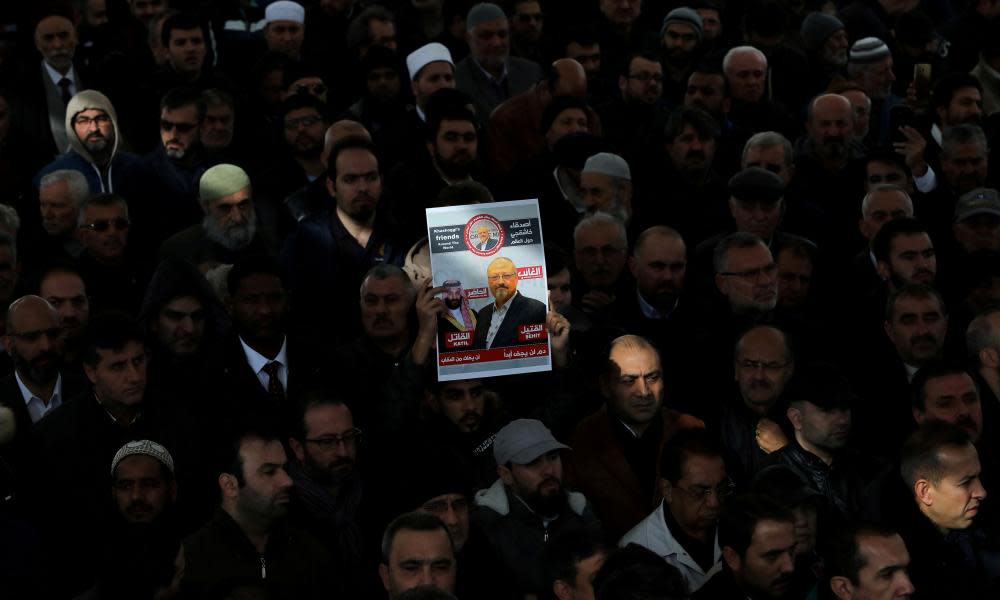The Guardian view on Jamal Khashoggi’s murder: Saudi Arabia and its friends

The UN report into October’s murder of Jamal Khashoggi at the Saudi consulate in Istanbul is the fullest account yet of events and as horrifying as one would expect. Agnes Callamard, the special rapporteur, describes a “deliberate, premeditated execution”; secretly recorded conversations before his visit discussed the arrival of the “sacrificial animal” and dismemberment of a body. She concludes that the crown prince of Saudi Arabia should be investigated because there is “credible evidence” that he and other senior officials are liable for the killing – a conclusion also reached by the CIA – despite the kingdom’s insistence that it was a rogue operation.
No reminder should be needed of the brutality of the killing of Khashoggi, a widely respected journalist living in Washington. Even Saudi Arabia’s business and diplomatic allies blanched, or at least felt obliged to put some distance between themselves and the crown prince Mohammed bin Salman. The kingdom, after repeated lies about what happened, announced that it would try 11 suspects for his murder.
Yet some of the top executives who hastily pulled out of the crown prince’s “Davos in the Desert” gathering following the murder have since appeared at another financial conference in Riyadh, even if their embrace of the kingdom is less enthusiastic than before.
Donald Trump, an unabashed cheerleader for Prince Mohammed, said that “we can’t let this happen”. But days after the murder, the US approved a licence for the export of nuclear technology. Now, despite the opposition of Congress, the administration plans to sell billions of dollars’ worth of arms to the kingdom as it pursues the terrible and pointless war in Yemen. The UK foreign secretary, Jeremy Hunt, who warned that “shared friendships depend on shared values”, has lobbied Germany to resume arms sales to Riyadh, halted over Khashoggi’s death.
Saudi Arabia and its crown prince hardly appear chastened, despite signs of a rift between King Salman and his heir, not confined to but triggered by the murder. In April it launched a fresh round of arrests of activists and critics. A prominent Arab activist living in Norway was forced to go into hiding after the CIA warned authorities that he faced a potential threat from Saudi Arabia. Riyadh has repeatedly been accused of launching hacking attacks against dissidents. The Guardian has reported that it had been identified as a target by a cybersecurity unit in the kingdom.
Ms Callamard’s report makes clear that though Riyadh must answer for this murder, the responsibility to safeguard human rights encompasses foreign businesses and governments too. In particular, she calls for a moratorium on the sale of surveillance tools to Saudi Arabia and other states until exporting countries can be confident of how they will be used. One way to honour Khashoggi is to celebrate his life. Another is to recognise the lessons of his death.

 Yahoo News
Yahoo News 
